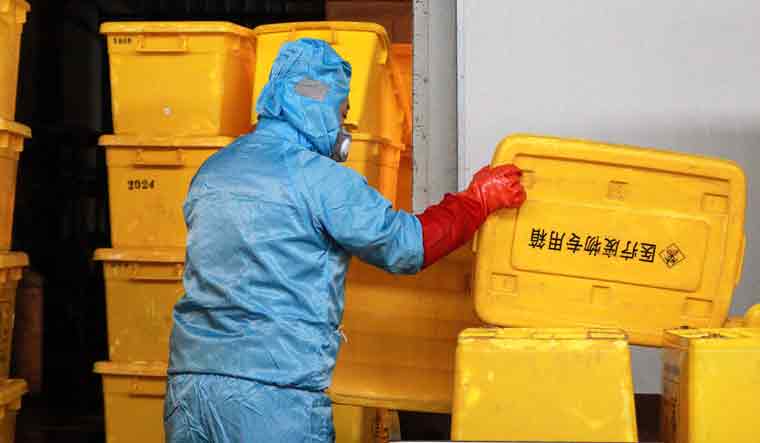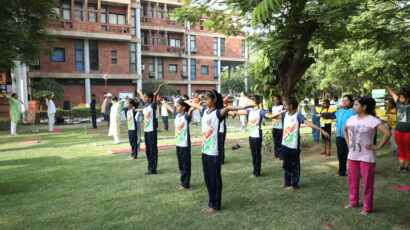India’s first Coronavirus case is reported in Kerala

India has confirmed its first Coronavirus case in Kerala state. The doctors at Thrissur General Hospital ,where the patient is admitted ,confirmed the case. Reports say the diseased was studying in China and brought in to home after the symptoms being displayed. Now his condition is satisfactory.
However Coronavirus death toll rises to 170 in China and it is reported that almost 7711 new cases have been confirmed across the world. 17 nations have been identified as being infected.
Google has locked down all its offices in China, Hong Kong and Taiwan with immediate effect and many airline services including British airways, United Airline , kaithe pacific airlines, Lion air etc. have been suspended to and from china over coronavirus scare.
MacDonald’s had earlier locked down some of its restaurants in china.
As the situation worsens, a look at how the killer virus spreads, symptoms, how it is diagnosed, treatment and prevention.
What are coronavirus infections?
Coronaviruses are a group of common viruses. They are named for the crown-like spikes on the surface of the virus. Some coronaviruses only affect animals, but others can also affect humans. Most people get infected with human coronaviruses at some time in their life. This usually causes mild to moderate upper-respiratory infections, like the common cold. But they can also cause more severe illnesses such as bronchitis and pneumonia.
There are several different types of human coronaviruses, including the Middle East respiratory syndrome (MERS) and severe acute respiratory syndrome (SARS) viruses.
How are coronavirus infections spread?
Human coronaviruses usually spread from an infected person to others through
- The air by coughing and sneezing
- Close personal contact, such as touching or shaking hands
- Touching an object or surface with the virus on it, then touching your mouth, nose, or eyes before washing your hands
- Rarely, feces (poop)
Who is at risk for coronavirus infections?
Anyone can get a coronavirus infection, but young children are most likely to get infected. In the United States, infections are more common in the fall and winter.
What are the symptoms of coronavirus infections?
The symptoms depend on the type of coronavirus and how serious the infection is. If you have a mild to moderate upper-respiratory infection such as the common cold, your symptoms may include
- Runny nose
- Headache
- Cough
- Sore throat
- Fever
- Not feeling well overall
Some coronaviruses can cause severe symptoms. The infections may turn into bronchitis and pneumonia, which cause symptoms such as
- Fever, which may be quite high if you have pneumonia
- Cough with mucus
- Shortness of breath
- Chest painor tightness when you breathe and cough
Severe infections are more common in people with heart or lung diseases, people with weakened immune systems, infants, and older adults.
How are coronavirus infections diagnosed?
To make a diagnosis, your health care provider will
- Take your medical history, including asking about your symptoms
- Do a physical exam
- May do blood tests
- May do lab tests of sputum, a sample from a throat swab, or other respiratory specimens
What are the treatments for coronavirus infections?
There are no specific treatments for coronavirus infections. Most people will get better on their own. However, you can relieve your symptoms by
- Taking over-the-counter medicines for pain, fever, and cough. However, do not give aspirin to children. And do not give cough medicine to children under four.
- Using a room humidifier or taking a hot shower to help ease a sore throat and cough
- Getting plenty of rest
- Drinking fluids
If you are worried about your symptoms, contact your health care provider.
Can coronavirus infections be prevented?
Right now, there aren’t any vaccines to prevent human coronavirus infections. But you may able to reduce your risk of getting or spreading an infection by
- Washing hands often with soap and water for at least 20 seconds
- Avoiding touching your face, nose, or mouth with unwashed hands
- Avoiding close contact with people who are sick
- Cleaning and disinfecting surfaces that you frequently touch
- Covering coughs and sneezes with a tissue. Then throw away the tissue and wash your hands.
- Staying home when sick.Courtesy :Centers for Disease Control and Prevention















